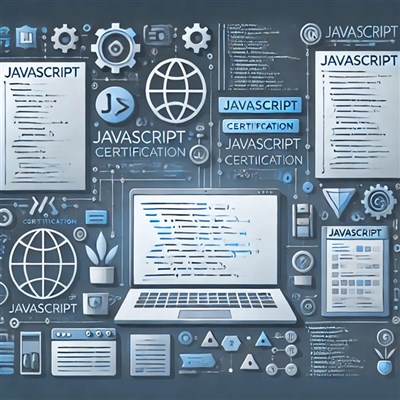
The global economy is increasingly interconnected, with goods moving across borders and industries relying on efficient logistics systems to meet consumer demands. Supply chain and logistics professionals play a crucial role in ensuring the smooth flow of materials, information, and resources within businesses. Whether you're starting your career or looking to enhance your skill set, enrolling in a supply chain and logistics course can equip you with a variety of valuable competencies. In this blog, we'll explore the top skills you will gain from a supply chain and logistics course and how they contribute to your success in this field.
Skills You Will Gain from a Supply Chain and Logistics Course
1. Supply Chain Planning and Management
At the heart of any supply chain course is the ability to understand and manage the entire supply chain process. This includes learning how to forecast demand, plan inventory, and coordinate with suppliers. Courses in supply chain and logistics will cover topics such as:
- Demand Forecasting: Using historical data and market analysis to predict customer demand and plan inventory levels.
- Inventory Management: Techniques to maintain optimal inventory levels to minimize costs while ensuring customer demands are met.
- Supplier Management: Building strong relationships with suppliers to ensure timely delivery of raw materials and components.
- Procurement and Sourcing: Negotiating contracts, understanding vendor management, and purchasing goods and services effectively.
Mastering supply chain management helps ensure that operations are efficient, costs are controlled, and customer satisfaction is maintained.
2. Logistics and Distribution Management
A supply chain and logistics course will teach you how to efficiently move products from one point to another, whether that involves raw materials arriving at a factory or finished goods reaching the end customer. Key logistics skills include:
- Transportation Management: Understanding how to choose the best mode of transportation (e.g., truck, ship, or air) and optimizing routes for cost-effectiveness.
- Warehouse Management: Learning the best practices for organizing warehouses, handling inventory, and streamlining the pick, pack, and shipping processes.
- Distribution Network Design: Designing distribution networks that minimize costs and ensure timely delivery of goods to customers.
- Reverse Logistics: Managing returns, repairs, and recycling processes efficiently.
Effective logistics management is essential to reduce operational costs and meet tight delivery schedules.
3. Data Analytics and Decision-Making
In today's data-driven business environment, supply chain professionals need to have strong analytical skills. A good supply chain and logistics course will introduce you to various data analysis tools and techniques. You'll learn to:
- Analyze Supply Chain Performance: Use key performance indicators (KPIs) to measure the effectiveness of supply chain operations and identify areas for improvement.
- Predictive Analytics: Leverage historical data to predict future trends and adjust strategies accordingly.
- Decision-Making Tools: Gain hands-on experience with software tools and techniques like simulation modeling, optimization, and scenario analysis to support decision-making processes.
By analyzing data, you can make informed decisions to improve supply chain performance, anticipate disruptions, and adapt to changing market conditions.
4. Risk Management and Resilience Building
Supply chain disruptions are inevitable, whether due to natural disasters, political instability, or global pandemics like COVID-19. A supply chain and logistics course will prepare you to manage these risks by teaching you how to build resilient supply chains. You'll gain skills in:
- Risk Identification and Assessment: Learning to identify potential risks and assess their impact on supply chain operations.
- Contingency Planning: Developing plans to mitigate risks, including alternative sourcing strategies, inventory buffers, and diversified transportation routes.
- Crisis Management: Understanding how to respond to supply chain disruptions swiftly and minimize operational downtime.
- Building Resilience: Strengthening the overall supply chain network to handle unexpected disruptions, such as supplier failures or transportation delays.
Risk management and resilience are crucial for ensuring business continuity in volatile market conditions.
5. Technology Integration in Supply Chain Management
The digital transformation of supply chains has made it essential for professionals to be familiar with various technology solutions. A supply chain and logistics course will cover the following technological tools:
- Enterprise Resource Planning (ERP) Systems: Using ERP software to integrate all aspects of supply chain operations, from procurement to production and distribution.
- Supply Chain Management (SCM) Software: Tools that offer real-time tracking of inventory, orders, and shipments.
- Automation and Robotics: Understanding the role of automation in warehousing, production, and distribution processes.
- Blockchain in Supply Chain: Learning how blockchain can enhance transparency, traceability, and security in supply chain transactions.
- Internet of Things (IoT): Using IoT devices for real-time monitoring of supply chain activities, such as tracking the condition of goods in transit.
Proficiency in these technologies helps supply chain professionals stay ahead in a rapidly evolving industry.
6. Global Trade and Compliance
In an era of globalization, supply chain professionals need to be well-versed in international trade regulations and compliance. A comprehensive course will introduce you to key concepts such as:
- Customs Regulations and Documentation: Understanding the legal requirements for importing and exporting goods across borders.
- Tariffs and Duties: Learning how different tariffs, duties, and trade agreements impact the cost and movement of goods.
- Incoterms: Understanding international commercial terms that define the responsibilities of buyers and sellers in the global trade environment.
- Sustainability and Ethical Sourcing: Developing strategies to ensure compliance with environmental regulations and ethical sourcing practices.
Navigating international trade successfully is essential for any business looking to expand its global reach.
7. Leadership and Communication Skills
Beyond technical knowledge, a supply chain and logistics course will help you develop soft skills that are vital for leadership and collaboration. These include:
- Team Leadership: Leading cross-functional teams, managing conflicts, and ensuring collaboration among different departments such as procurement, production, and distribution.
- Communication Skills: Effectively communicating with suppliers, stakeholders, and customers to ensure transparency and manage expectations.
- Problem-Solving and Critical Thinking: Addressing complex supply chain challenges with innovative solutions.
- Negotiation: Enhancing your ability to negotiate with suppliers, carriers, and other stakeholders to secure favorable terms and conditions.
Strong leadership and communication skills enable you to manage teams, build relationships, and drive efficiency across the supply chain.
Conclusion
A supply chain and logistics course equips you with the skills needed to navigate the complexities of modern supply chains. From supply chain planning and risk management to technology integration and global trade compliance, these courses provide a comprehensive foundation that prepares you for a successful career in this dynamic field. Whether you’re a new entrant or an experienced professional, investing in a supply chain and logistics course can significantly enhance your career prospects and enable you to contribute to the efficiency and competitiveness of your organization.
In conclusion, if you're looking to enhance your career prospects in the supply chain and logistics sector, consider enrolling in a supply chain and logistics course with Koenig Solutions, a leading IT training company providing certifications in top technology courses. Visit koenig-solutions.com to learn more about their offerings.







COMMENT